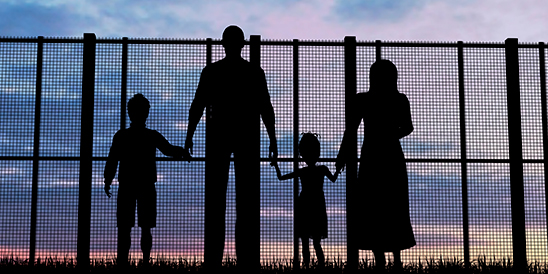‘Falling through the cracks’ – Community perspectives on asylum seeker and refugee mental health
This post forms part of our series in showcasing abstracts of presentations featured at our annual postgraduate interdisciplinary conference on refugee and forced migration research, hosted in November 2018 at The University of Melbourne.
ROBERT GRUHN & SHAWFIKUL ISLAM
This presentation from the Ethnic Communities Council of Victoria (ECCV) will outline findings from a recent ECCV Health Policy Issues Paper: ‘Falling through the cracks’ – Community perspectives on asylum seeker and refugee mental health. Through consultations with Afghan Hazara, Burmese and Rohingyan communities, ECCV found that these communities are experiencing difficulties and gaps accessing a complex health and mental health system. A central theme for discussion will be the current knowledge gap about if and how refugees and people seeking asylum in Victoria effectively use health and mental health services. ECCV will outline why and how refugees and people seeking asylum with mental health conditions face barriers to access, including language, experiences of trauma and torture, limited knowledge of options and other complex settlement challenges. In addressing these issues, ECCV will propose pathways and support options to improve their mental health effectively and appropriately.
We will argue that more specialised, community-based and integrated refugee and asylum seeker mental health services are needed to fill the gap between mainstream mental health and those services that treat metal health conditions, such as torture and trauma. Community recommendations (gathered through in-depth interviews with community leaders) will emphasise the changes required to achieve culturally safe, accessible and responsive mental health services. Addressing quality and safety concerns will be vital to increase accessibility and culturally competency of mental health services, specialist refugee mental health services. Mainstream services need to be culturally appropriate and more responsive to diversity. Policy makers, service providers and health practitioners must ‘get it right’ in a time of intensified transnational population movements.
Robert Gruhn has advocated on social justice issues in community organisations in Germany and Australia. He is experienced in research, policy and advocacy addressing inequities in health, disability and aged care. Recent work includes advocacy on interpreting and refugee mental health. Robert holds degrees in history, political science and international relations.
Shawfikul Islam is a Burmese-Rohingya community activist who lives in Melbourne’s south east in Springvale. Shawfikul arrived in Australia in 2013.He is the chairperson for the Australian Burmese Rohingyan Organization (ABRO) and currently also works as a union organiser. The main issues Shawfikul will discuss are statelessness, barriers to education and successful settlement and refugee health and wellbeing issues linked to migration.
Image Credit: APS (2018): https://www.psychology.org.au/About-Us/What-we-do/advocacy/Advocacy-social-issues/Refugees-and-asylum-seekers
